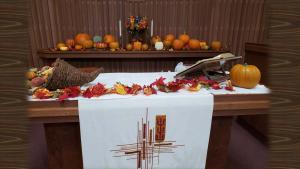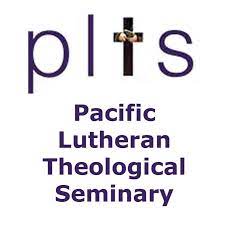To Eat No-Kill Cultivated Meat
Part Eight: Thanksgiving Food Theology
By Brian Brozovic and Ted Peters

Is there such a thing as a Food Theology? Yes, indeed.
“No figure in the Bible is more associated with food that its central character, Jesus,” writes Rory Shiner. Jesus’ “first miracle was in response to a catering crisis at a wedding. (The couple had run out of wine. Jesus’ response was to turn four hundred and fifty liters of water into the best wine the guests had ever tasted.)” If Jesus feels responsible for making a banquet festive, we can do that too.
Breaking News, November 21, 2023
No-Kill Cultivated Meat approved in US by FDA. Until now, only Singapore had approved for human consumption no-kill cultivated meat. Is it coming to the U.S. too? How should we think about no-kill cultivated meat theologically?
A Public Food Theology of Thanksgiving
In this column on public theology, Ted has insisted that the theologian offer insights aimed at the global common good. The public theologian turns first to the globe and then to the dinner table. “We really must treat the planet as our commons,” writes sockdolager eco-theologian Larry Rasmussen; “and nurture human good and the good of others that share in the commons.” Now, we turn to the dinner table.
Der Mensch ist was er ißt ( we are what we eat), say our German friends. This is humorous. Yet, it’s more than a joke. Food theology prompts us to think about our food. Food comes into us. And, what we take in either nourishes our bodies or is jettisoned. Our environment is constantly passing through us. This pass through is what makes our very life possible. We are dependent on food. And, we are dependent on our Creator God who grants us food. Does this dependence belong to a food theology? Food theology leads to thanksgiving, among other concerns.
When you sit down to table, do you offer a prayer of thanksgiving? To pause to say grace before digging your fork into your salad would remind you of the sacredness of this dimension to the food cycle. We thank God. And, we thank the living plants and animals who’s lives were sacrificed for our good health.
The food theologian tells us what the Bible says about food, to be sure. But, we ask, what does the Bible inspire us to do in the face of our global food crisis, the challenges of food justice, our planet’s ecological flourishing, and emerging new food technologies? Let’s ask Norman Wirzba and Brian Brozovic.
Meet Norman Wirzba

Norman Wirzba is a real live food theologian. Dr. Wirzba is Gilbert T. Rowe Distinguished Professor of Christian Theology and Senior Fellow at the Kenan Institute for Ethics. Where is that? At Duke Divinity School.
Professor Wirzba pursues research and teaching interests at the intersections of theology, philosophy, ecology, and–here’s what’s important for our discussion here–agrarian and environmental studies. In particular, his research is centered on a recovery of the doctrine of creation and a restatement of humanity in terms of its creaturely life.
Food Theology? Yes. “Theologically understood, food is not reducible to material stuff. It is the provision and nurture of God made pleasing and delectable. Food is God’s love made nutritious and delicious. Eating is the daily reminder that life comes to us as a gift” (Wirtzba 2019, 46).
“Life as we know it depends on death, needs death, which means that death is not simply the cessation of life but its precondition” (Wirtzba 2019, 40).
That life-lives-off-death is the nature of God’s creation within which we live. What Norman wants us to get and get right is this: who we are as God’s creatures is utterly and thoroughly interdependent with everything else on Earth, including our fellow non-human animal creatures. Plants & Animals R Us, so to speak.
What does No-Kill Cultivated Meat prompt Norman Wirzba to think?
Some Thoughts on Food Theology by Brian Brozovic

Brian Brozovic. Wirtzba’s view is futuristic, yet reserved as well. Very reserved. The idea of a growing population and more mouths to feed with less resources, be it land, water, is proving to be daunting says Wirzba.
A Thanksgiving Food Theology

Brian Brozovic. This coming Thanksgiving Day, my family and I will be sitting down as our immediate family. My spouse and our three children to share our meal together. We share our appreciation and thankfulness each night in our table prayers. So, Thanksgiving Day doesn’t bring a thankfulness that we don’t feel and appreciate year round. Maybe that is because I am so closely connected with the food industry, local farmers, local ranchers.
Some Scientific Thoughts
Some Prayerful Thoughts
What’s Next?

Here is what we’ve done so far.
To Eat No-Kill Cultivated Meat. Part One: The Science
To Eat No-Kill Cultivated Meat. Part Two: Kosher? Interview with Sam Shonkoff
To Eat No-Kill Cultivated Meat. Part Three: Hindu? Jain? Interview with Rita Sherma
To Eat No-Kill Cultivated Meat. Part Four: Mormon? Interview with Lincoln Cannon
To Eat No-Kill Cultivated Meat. Part Five: Muslim? Interview with Mahjabeen Dahla
To Eat No-Kill Cultivated Meat: Part Six: Catholic? Interview with Lisa Fullam
To Eat No-Kill Cultivated Meat. Part Seven: Christian Vegetarianism? Interview with John Ryder
To Eat No-Kill Cultivated Meat: Part Eight: Food Theology? Interview with Norman Wirzba & Brian Brozovic
What’s next? Nothing planned yet. Keep your clicker handy.
 Brian Brozovic is a student at Pacific Lutheran Theological Seminary and Ted Peters is an emeritus professor at Pacific Lutheran Theological Seminary in Berkeley, California, USA. Visit Professor Peters’ website: TedsTimelyTake.com.
Brian Brozovic is a student at Pacific Lutheran Theological Seminary and Ted Peters is an emeritus professor at Pacific Lutheran Theological Seminary in Berkeley, California, USA. Visit Professor Peters’ website: TedsTimelyTake.com.
▓














